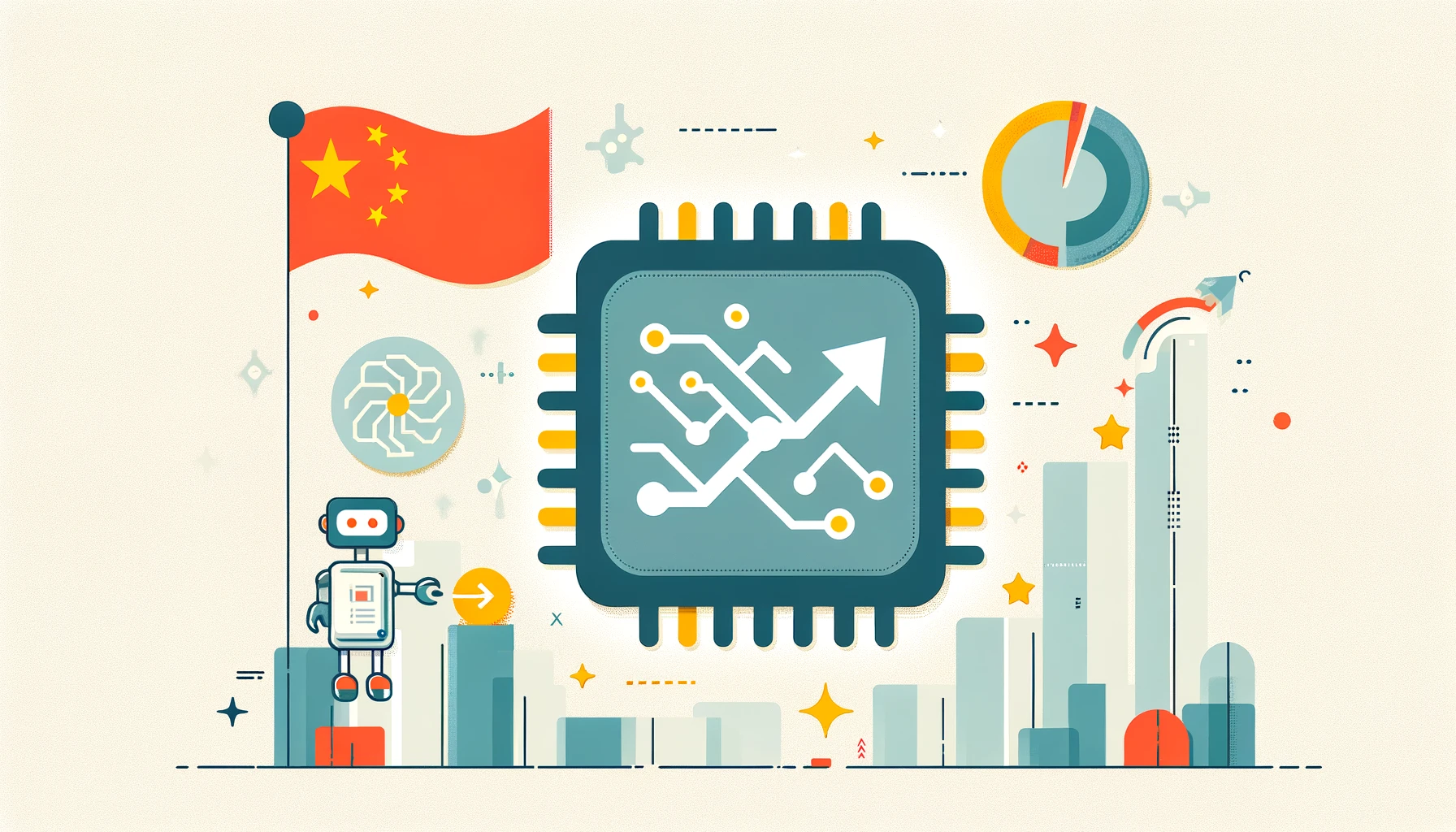
In recent years, China has been aggressively working to narrow the technological divide with global leaders in artificial intelligence (AI) chip production. This effort, driven by local talent and vast data resources, has gained momentum despite significant challenges, including stringent U.S. trade controls.
Xu Bing, co-founder of SenseTime Group Inc., one of China’s foremost AI pioneers, recently shared insights at the UBS Asian Investment Conference in Hong Kong. Despite being targeted by U.S. sanctions that restrict investment and limit access to critical technologies, SenseTime and other Chinese firms are swiftly progressing in the development of domestic AI chips.
Xu emphasized the computational power deficit in Asia compared to the United States. He quantified the gap as being nearly tenfold, a significant challenge for regional developers. However, he remains optimistic due to Asia’s rich reservoir of talent and data.
“Asia may lag in computational resources, but we never lack the talent or the data necessary to close the gap,” Xu remarked during an interview with Bloomberg’s David Ingles.
The U.S. has imposed trade restrictions that block Chinese access to advanced AI accelerators from companies like Nvidia Corp., which has catalyzed the push for self-reliance. Leading Chinese technology firms, including Huawei Technologies Co. and Shanghai Biren Technology Co., have been at the forefront of developing indigenous alternatives. These companies have made significant strides despite being under the same U.S. sanctions.
Huawei, for example, has made notable advances in chip technology, successfully circumventing U.S. restrictions to develop its own sophisticated smartphone processors last year. This development represents a critical milestone in China’s path to technological independence.
SenseTime, under Xu’s leadership, aims to achieve profitability within the next two years. The company has raised approximately US$6 billion over the past decade, investing a significant portion in research and development to enhance its AI capabilities, including more than US$1 billion on AI accelerator infrastructure. Despite these efforts, SenseTime’s shares fell by as much as 3.7% in Hong Kong on a recent Tuesday, continuing a week of declines.
Financial analysts from Bloomberg Intelligence, Robert Lea and Jasmine Lyu, have expressed skepticism about SenseTime’s optimistic profit projections. They argue that the company’s focus is too narrow and its scale too limited to sustain profitability in the near term. With just 4.6 billion yuan in net cash at the end of 2023 and a cash burn of 4.7 billion yuan that year, they predict SenseTime might need to seek additional capital within the next twelve months.
Despite these financial challenges, Xu is confident about the future of China’s AI industry. He highlights the ongoing collaborations between SenseTime and local semiconductor companies to enhance their computational capabilities, although specific partners were not named.
- Huawei and Biren Technology: Leading the charge in developing domestic AI chips.
- Moore Threads Intelligent Beijing Co.: Emerging as a promising player, recently highlighted during a tour by Chinese Premier Li Qiang.
Major Chinese AI Chipmakers and Their Progress
| Company | Recent Developments |
|---|---|
| Huawei Technologies Co. | Developed advanced smartphone processors in 2023. |
| Shanghai Biren Technology Co. | Continued advancements despite U.S. sanctions. |
| Moore Threads Intelligent Beijing Co. | Recognized by Chinese Premier for AI innovations. |
Xu remains philosophical about the future, viewing computational power as a commodity that will eventually cease to be a limiting factor. “In the long run, compute won’t be a gap,” he asserts. This perspective underscores a broader vision where China not only catches up but possibly leads in certain aspects of AI technology.
As China continues to develop its AI capabilities, the global landscape of technology and innovation may see a significant shift. The determination of Chinese firms to overcome international sanctions and trade barriers is not just reshaping their corporate trajectories but also the geopolitical dynamics of technology.
Related News:
Featured Image courtesy of DALL-E by ChatGPT
